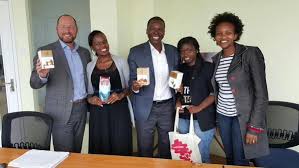SCOPEinsight, amultinational rating agency supported by the Netherlands Embassy which has rolled out a formula that identifies the strengths and weakness of agricultural cooperatives, link them to NGOs and experts for technical assistance and recommend them to financial institutions for credits.
This is expected to revolutionize agricultural funding in the country especially for small holder farmers viewed as high risk by creditors, with statistics showing that only five per cent of all loans advanced by banks go to finance agriculture in a country whose 75 per cent of the population depends on agriculture as primary source of food. The initiative by SCOPEinsight intends to fill missing gaps in the administration and operations of small scale cooperatives in a bid to improve their credit worthiness and convince creditors to embrace them.
According toSCOPEinsight’s Business Development Manager East Africa, Geoffrey Nyamota, the rating which is ongoing in several developing nations in the world will see more farmers access finances to improve on their productivity hence limiting threats of food insecurity in the world. He explained that most small holder farmers lack clear financial records, a key weighing scale creditors use while loaning.
While rating a cooperative, SCOPEinsight experts tackle nine critical areas which includesupply, internal management, financial management, sustainability, operations and external risks with each of those areas awarded points ranging from 1-5. The highest mark is 5, medium is between 3-3.5 while less than three indicates low performance. After accessing a firm, the company then help those producer organizations/SMEs to identify suitable agencies or experts to give them skills in areas they perform dismally in order to improve their merits.
‘’A part from helping farming groups to understand creditworthiness of their businesses and develop their risk profile, we also identify their weaknesses and engage their developing partners in developing relevant curricula that address the gaps in production, financing and market linkages to help those firms improve,’’ said Nyamota. He disclosed that the agency is also working hand in hand with various creditors in Kenya in a bid to convince them to relook at their harsh loaning criteria that lock out many small holder farmers.
Since its inception in Kenya four years ago, the company has managed to rate at least 300 farming cooperatives with most of them improving their profiles, access credits and increasing their productivity. One such group is KabuboniFarmers Cooperation inTharaka-Nithi. The farmers had relied on growing coffee for their main source of income, but when global coffee prices plummeted a number of the farmers neglected the crop and the sustainability of their supply chain was at risk.
They identified an opportunity to diversify into dairy farming although many of the farmers already kept dairy cows, they didn’t have fa cilities to store the milk at the correct temperature. The 900 member cooperative also lacked credible financial and risk profile records to obtain credit. After accessing the cooperative’s strengths and weaknesses, SCOPEinsight provided them a detailed report highlighting areas where improvement was needed and recommended it to experts for assistance. It is from this initiative that Kabuboni managed to obtain Sh3m to set up a milk chilling plant.
cilities to store the milk at the correct temperature. The 900 member cooperative also lacked credible financial and risk profile records to obtain credit. After accessing the cooperative’s strengths and weaknesses, SCOPEinsight provided them a detailed report highlighting areas where improvement was needed and recommended it to experts for assistance. It is from this initiative that Kabuboni managed to obtain Sh3m to set up a milk chilling plant.
The move is expected to be a game-changer as many farmer organizations in Kenya are unable to obtain credit mainly due to lack of a standardized way to rate the creditworthiness of their businesses and develop their risk profiles. Nyamota explained that although most financial institutions have loan packages targeting farmers, those institutions have little understanding of agriculture is undertaken and hence fail to notice economic viability of farmers. He said that it was on this basis that SCOPEinsightis targeting most of those institutions for partnership in a bid to offer intermediacy services.
The initiative by SCOPEinsight comes on the backdrop of a recent report by FAO that shows a global decrease in agricultural funding. World Bank lending for agriculture declined from $3.66 b in 1990 to $1.34 billion in 2000. Loans to agriculture accounted for 18 percent of World Bank lending in 1990s, but only about 9 percent in 2000s. Except for IFAD, all of whose lending is to agriculture, there was a substantial decline in total IFI lending to agriculture, both in absolute terms and for individual lenders. In Kenya, the government allocated a paltry 3.5 per cent of its budget on agriculture an indication of low financial confidence in agriculture sector which is ironically the country’s economic engine.
A part from Kenya, the agency operates in several other developing nations in Africa, Asia and Latin America. Nyamota is optimistic that farmers can produce more food if the government and other stakeholders especially in financial circles change the negative mindset about the sector. The agency collaborates with other firms and NGOs including IFAD,IFC, Solidaridad, ICCOand local banks to assist farmers.
The agency charges a fee to offer services to co-operatives. Nyamota explained that they are working on membership subscription module which will see co-operatives pay much lower fees.